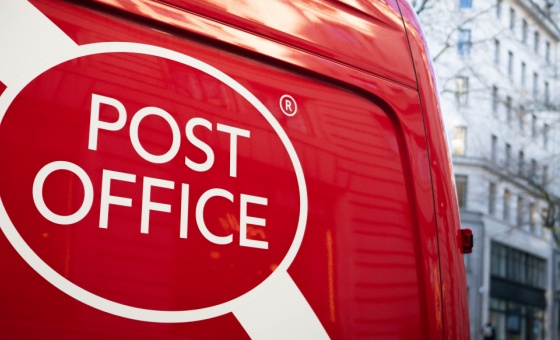This is the last article you can read this month
You can read more article this month
You can read more articles this month
Sorry your limit is up for this month
Reset on:
Please help support the Morning Star by subscribing here
Saturday was the 80th anniversary of the infamous 1934 rally staged by Oswald Mosley’s gangsters at London’s Olympia venue.
This date is barely a fortnight after a tiny uniformed group of Britain First fascists, sinisterly escorted by an armoured Land Rover, marched past a mosque in London’s Brick Lane, echoing in chilling fashion the 1930s antics of hereditary baronet Sir Oswald Mosley and his British Union of Fascists.
The Olympia meeting was intended to mark the escalation of influence of Britain’s fascists and to be a stepping stone towards their acquisition — aping developments in Italy and Germany — of political power.
Instead, the anti-fascist movement, through courageous vocal interventions at the price of many injuries, showed up the fascists for the thugs they were.
It caused them to lose allies, facilitating the construction of a stronger anti-fascist movement — which was to lead to the historic victory over the Mosleyites at the battle of Cable Street in 1936.
Mosley’s rally occurred against a frightening international backcloth.
Italy was under the heel of fascist leader Benito Mussolini. Still more dangerously, Germany — having much greater industrial power — had been nazi Germany since the early spring of 1933.
In both countries socialist and trade union organisations had been suppressed and dissent outlawed.
Ernst Henri’s book Hitler Over Europe put the finger on the nazi plan — already evidenced by rearmament at a dramatic pace — for Germany’s territorial expansion through war.
“The Jews”, he wrote, “are the nazis’ best catchword for agitation purposes and their cheapest scarecrow.”
On March 7 1934, the US ambassador to Berlin visited Hitler at a moment when in New York arrangements were being made for a mock trial of the nazi dictator.
Hitler, wrote ambassador Dodd in his diary, “broke in frequently with such expressions as ‘Damn the Jews’ and insisted that if agitation continued in the outside world he would make an end of all Jews in Germany.”
In April 1934, ominously, Jews in Germany were banned from national and local public office.
The war danger extended far beyond Europe. Japan’s imperial and militaristic government had substantial forces in Manchuria since unprovoked intervention there in September 1931. It had more of civil-war-torn China in its sights.
Britain’s “national” government, however, since 1931 headed by renegade former Labour leader Ramsay MacDonald, was paying scant regard to the growing menace to peace, preferring to contemplate fascist governments as sensible negotiating partners, who would be propitiated by being thrown bones in the form of territories in Africa, China, the Soviet Union or anywhere else that seemed convenient.
On July 1 1933 a thousand of Mosley’s Blackshirts marched in London, and in that same month John Strachey — a power house publicist for socialism and anti-fascism at that time, whatever became of him later — produced The Menace Of Fascism.
This influential work suggested that only Italy’s weakness had preserved peace in Europe to date.
“Fascism,” he wrote, “is a blood transfusion for capitalism.” It was “merely the militant arm of the largest property owners.”
During 1933 intimidation of Jewish people in London and elsewhere by the British Union of Fascists (BUF) became common, while the police were providing safe escort for fascist speakers and marchers. Mosley, rich himself, was receiving substantial financial support from wealthy backers.
Support of all kinds was boosted in January 1934, when Lord Rothermere’s Daily Mail declared itself an enthusiast for the BUF.
In late April his Sunday Dispatch invited readers to compete for tickets to the Olympia rally by sending in postcards explaining “Why I like the Blackshirts.”
Large and secret donations were arriving from Mussolini — £20,000 in January with much more to follow.
On April 22 Mosley addressed 10,000 supporters in London’s Albert Hall — “exiles from empire outposts, disgruntled Conservative women, hard-faced beribboned ex-servicemen and young toughs from the shops and the banks.” Mosley’s speech pleased them: “No surrender to India. No surrender to Ireland … Jews, international financiers and Communist leaders will be dealt with.”
On this occasion there were no hecklers inside the building. But outside it, opposition was loud.
About the beginning of June, anti-fascists delivered a large “postcard” to Rothermere’s newspaper building carrying a message of why they disliked the Blackshirts, accompanied by shouts of “All Out Against the Blackshirts next Thursday.”
Britain’s Communist Party had taken the lead in calling for a counter-demonstration at Olympia and was working together with Independent Labour Party activists, while the Labour Party and TUC leadership had adopted a policy of standing virtuously aloof.
Integral to the anti-fascist cause was leftwinger Dorothy Woodman, who was secretary of the Union of Democratic Control and joint secretary of the Committee for the Relief of Victims of Fascism. Her solidly researched book Germany Re-Arms was soon to appear.
She added to other preparations for the Olympia meeting by entering the BUF’s headquarters suitably attired as a Conservative lady, armed with a false double-barrelled name and seeking confidential information.
At risk of exposure and assault, she escaped intact, undiscovered and better informed.
The June 7 rally was guarded by a couple of thousand Blackshirts. Enough anti-fascists had obtained tickets — some by submitting bogus postcards as to their “liking” for the Blackshirts — to enable orchestrated heckling, such as “Hitler and Mosley mean hunger and war.”
The Daily Worker — the Morning Star’s predecessor — reported what happened to the hecklers: “We were involuntary witnesses of wholly unnecessary violence inflicted by Blackshirts on interrupters.
“Men and women were knocked down, were still assaulted and kicked on the floor.”
The BUF’s savage behaviour brought about a public outcry, extending well beyond those on the political left.
In July’s Labour Monthly, editor Rajani Palme Dutt — later also Daily Worker editor — whose alarm-call, Fascism And Social Revolution had just been published, summed up: “The anti-fascist counter-demonstration at Olympia has shown the true path of the fight against fascism.
“The anti-fascist demonstrators, by their courage and at the cost of their own bodies, have opened the eyes of millions to the real character of fascism.
“It is solely thanks to their stand against fascism that the present universal outcry against fascism has developed, where before there was silence or indifference or amused toleration (‘Laugh, and Fascism Will Die,’ as the Daily Herald said).
“But let none mistake the outcry for the fight. The anti-fascist demonstrations at Olympia have shown the united front in action and have laid the foundations for a broad anti-fascist front throughout Britain, which can sweep fascism out of existence.”
A Co-ordinating Committee for Anti-Fascist Activity was elected in late July, including the legendary Bert Papworth of the Busmen’s Rank and File Movement, with Strachey as secretary.
It was to prove powerfully effective in leading the charge against fascism.
In October 1936, the anti-fascist front in numbers sensationally blocked the BUF’s police-protected march through east London in the battle of Cable Street.
This did not end fascism in Britain. But it was thrown so much on the back foot that it never recovered its earlier momentum.
Tragically, the world war whose image was visible as early as 1934, and which featured the cold-blooded nazi slaughter of six million Jews, was another matter — the responsibility of the Hitler government and of its friends in London and Paris who enabled it to become a monster of aggressive militarism.
Now, in 2014, uniformed fascism is again on our streets, fuelled by mass unemployment, underemployment, housing shortages and government-imposed extreme poverty — in short, by the consequences of Thatcherism adapted to conditions of prolonged economic slowdown.
Blame is thereby poisonously redirected away from out-of-control capitalism and its feather-bedded elites towards migrant workers and, with especial venom, towards Muslims.
The task remains as self-evident and vital as ever it was — to stand up to nazis.









